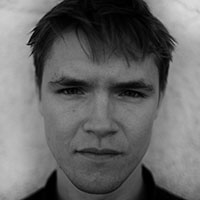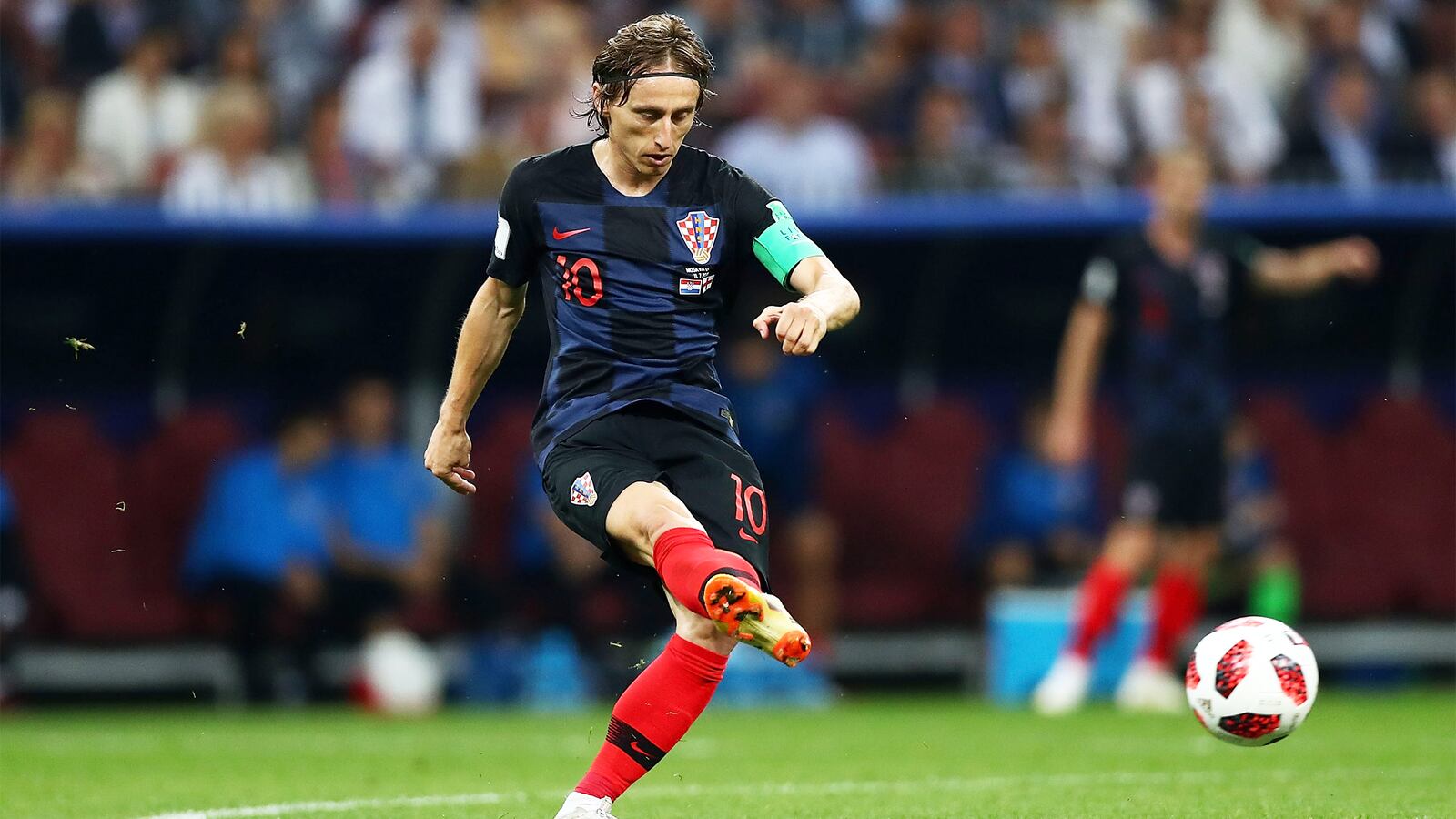There’s a grainy video on YouTube which captures the French football team training in the run-up to the 1998 World Cup final against Brazil. They’re discussing how to defend against Brazil's deadliest opponent, the striker Ronaldo – original, Brazilian edition; not the later, bronzed Portuguese edition – and they’re having fun, doing impressions of how he dribbles but also laughing about how he’s had the better of them in the past.
Ronaldo was a sensational player and in the video the equally sensational French defenders Marcel Desailly and Lilian Thuram are almost enchanted by what the Brazilian could do with the ball. There is also Didier Deschamps, midfielder and France captain, a player famously described as a “water carrier,” a leader who would lift the World Cup on home soil in the Parisian suburb of Saint Denis.
Twenty years on, Deschamps is sitting in the coach’s dugout as his French team takes on Croatia in Sunday's FIFA World Cup final. Twenty years on and memories of 1998 are still clear. Come game night, Ronaldo didn't have a chance to be the opponent Desailly, Thuram and team France feared he'd be. In the hours before the final, the Brazilian had a seizure and was told he couldn’t play. Medical tests revealed there was nothing wrong with him and he insisted on playing. He was a shadow of his usual self.
A multi-cultural, multi-ethnic French team won the final 3-0 on home turf in the Paris suburbs. The far-right leader Jean-Marie Le Pen had said he barely recognized the French team because of the number of black players, but without the sons of les colonies, France would have gone nowhere.
On Sunday, another multi-cultural, multi-ethnic French team takes the pitch at the World Cup final, with another far-right Le Pen – Jean-Marie’s daughter Marine – trying to make waves at home. This France team does not have to contend with a player like Brazil’s Ronaldo, but they do face Croatia’s Luka Modric, a player who looks like a sorcerer and who casts spells over his opponents like one.
Modric, who is 32 and plays for Spanish giants Real Madrid, makes up what has been the classiest midfield duo of the tournament with Ivan Rakitic, who is 30 and plays Real’s rivals Barcelona. Both players are master technicians: they can keep possession almost ad infinitum or turn and unlock an opposition defense with eye-of-the-needle passes.
Modric is also an excellent dribbler, who possesses a fierce and pinpoint accurate long-range shot. He has won every club trophy going — more, in fact, than entire England team he faced in the semi-final — but some supporters of his believe he still hasn’t been truly recognized as an all-time great.
He is a small and not particularly showy player, but in Croatian colors he has been a leader. After his team beat England in the semi-final, both Modric and his teammate, Liverpool’s Dejan Lovren, said that the “arrogant” British press talking up an easy England win had spurred Croatia on.
Yet Modric is also a divisive figure in his homeland. A scandal involving Zdravko Mamic, a former executive of Croatia’s largest club team, Dinamo Zagreb, has left some football fans furious with Modric, who had told anti-corruption investigators Mamic had stolen millions of Euros owed to the club and then, once put on the stand in court, said he couldn’t remember a thing. Mamic has profited off other members of the squad and for a nation of footballing fans fed up with crony capitalism, feelings about players like Modric can be mixed at best. The midfielder still faces charges of perjury in his homeland.
On the pitch, the battle between Modric, Rakitic and the French midfield – and Paul Pogba, in particular – will be fascinating to watch. Much to the delight of his Manchester United manager Jose Mourinho, Pogba has had a brilliant and disciplined tournament. Often criticized for not doing enough defensive work, Pogba has tracked back, put in tackles and headed balls clear. He’s also driven forward in trademark fashion, his formidable size and strength more than matched by his exquisite touch and passing ability.
It may be at the back that Croatia have the most to fear, though. France are favorites to win this and their forward line makes that designation obvious. In the 19-year old attacker Kylian Mbappe, they have maybe the best player to come along since Lionel Messi. Mbappe, who usually plays on the right wing for France but can play on the left or through the middle, is literally as fast as Usain Bolt and as technically accomplished as his teammate Antoine Griezmann, who is another major threat for France. The Croatian defense is a tough nut to crack, but the mixture of technique, pace and power France have up front could be overwhelming.
Nevertheless, this has been a World Cup of upsets. Reigning champions Germany failed to make it out of the group stage. Spain and Portugal, who unexpectedly beat France in the 2016 European Championship final, failed to make it much further. Brazil lost to Belgium, who was nearly dispatched by Japan. It is the European teams who have prospered – a result, perhaps, of the centralizing effects of globalization, by which any half-decent player from South America, or Africa or elsewhere will be brought to Europe as quickly as possible, leaving leagues outside of Europe bereft of the footballing culture they once had.
In terms of population, Croatia is the second-smallest country to ever make it to the World Cup final. Like Uruguay, the smallest nation to ever make it, the Balkan state has a strong footballing tradition, which means it has consistently punched above its weight.
A victory against France in the final would nevertheless be an incredible achievement. In 1998, it was Croatia who France beat in the semi-final, before taking on Ronaldo’s Brazil. For Croatia’s current crop of players, born into the Balkans war, 1998 was also a formative experience. On Sunday, as this wonderful tournament comes to an end, they will seek their revenge.






